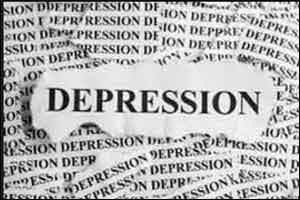- Home
- Editorial
- News
- Practice Guidelines
- Anesthesiology Guidelines
- Cancer Guidelines
- Cardiac Sciences Guidelines
- Critical Care Guidelines
- Dentistry Guidelines
- Dermatology Guidelines
- Diabetes and Endo Guidelines
- Diagnostics Guidelines
- ENT Guidelines
- Featured Practice Guidelines
- Gastroenterology Guidelines
- Geriatrics Guidelines
- Medicine Guidelines
- Nephrology Guidelines
- Neurosciences Guidelines
- Obs and Gynae Guidelines
- Ophthalmology Guidelines
- Orthopaedics Guidelines
- Paediatrics Guidelines
- Psychiatry Guidelines
- Pulmonology Guidelines
- Radiology Guidelines
- Surgery Guidelines
- Urology Guidelines
Teenage depression linked to father's depression

Adolescents whose fathers have depressive symptoms are more likely to experience symptoms of depression themselves, finds a new study led by UCL researchers.
While the link between mothers' depression and depression in their children is well-established, the new Lancet Psychiatry study is the first to find an association between depression in fathers and their teenaged children, independent of whether the mother has depression, in a large sample in the general population. The effects of fathers' and mothers' depression on their children's symptoms were similar in magnitude.
"There's a common misconception that mothers are more responsible for their children's mental health, while fathers are less influential -- we found that the link between parent and teen depression is not related to gender," said the study's lead author, Dr Gemma Lewis (UCL Psychiatry).
"Family-focused interventions to prevent depression often focus more on mothers, but our findings suggest we should be just as focused on fathers," she said.
The researchers drew on two large longitudinal studies of children: Growing up in Ireland, and the Millennium Cohort Study in England and Wales, using data from 6070 and 7768 families from the two studies, respectively. Parental depressive symptoms were assessed using a questionnaire when the children were 9 and 7 years old in the two cohorts, and then adolescent depressive symptoms were assessed when the children were 13 and 14 years old. The study samples were population-based, meaning they included people who experienced symptoms of depression but had not sought treatment.
After adjusting for confounding factors such as maternal depression, family income and parental alcohol use, the researchers found that for every 3-point (one standard deviation) increase on the Mood and Feelings Questionnaire (MFQ; a commonly-used measure of depressive symptoms) on the part of fathers, there was an associated 0.2-point increase in the adolescent's MFQ score. The findings were replicated in both independent study samples.
The incidence of depression increases markedly at the beginning of adolescence, so the researchers say that understanding the risk factors at that age can be key to preventing depression later in life.
"Men are less likely to seek treatment for depression. If you're a father who hasn't sought treatment for your depression, it could have an impact on your child. We hope that our findings could encourage men who experience depressive symptoms to speak to their doctor about it," said Dr Lewis.
Previous studies have shown links between paternal depression and poor behavioral and emotional outcomes in their children, but no large study in the general population (as opposed to a clinical population) has looked at the link with adolescent depression while taking into account maternal depression as well.
"The mental health of both parents should be a priority for preventing depression among adolescents. There has been far too much emphasis on mothers but fathers are important as well," said the study's senior author, Professor Glyn Lewis (UCL Psychiatry).
For more details click on the link: Gemma Lewis, Martha Neary, Ela Polek, Eirini Flouri, Glyn Lewis. The association between paternal and adolescent depressive symptoms: evidence from two population-based cohorts. The Lancet Psychiatry, 2017; DOI: 10.1016/S2215-0366(17)30408-X

Disclaimer: This site is primarily intended for healthcare professionals. Any content/information on this website does not replace the advice of medical and/or health professionals and should not be construed as medical/diagnostic advice/endorsement or prescription. Use of this site is subject to our terms of use, privacy policy, advertisement policy. © 2020 Minerva Medical Treatment Pvt Ltd